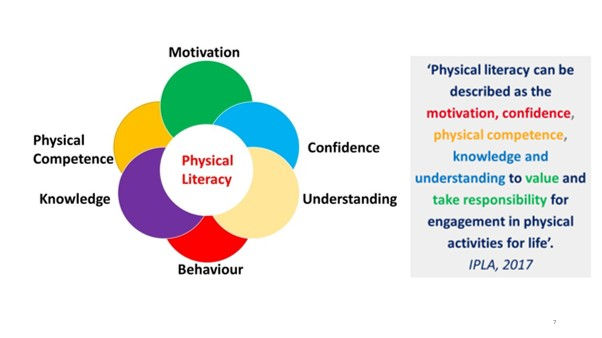5 avr. 2023
‘Physical literacy can be described as the motivation, confidence, physical competence, knowledge and understanding to value and take responsibility for engagement in physical activities for life’ (IPLA, 2017). Physical literacy is a growing global concept that places individuals at the heart of a personal relationship with physical activity. It is our relationship with movement and physical activity throughout life. Physical literacy includes everyone regardless of capability and age. It recognises that individuals have their own needs and past experiences of movement and physical activity and therefore everyone’s journey is unique, but importantly, it also changes throughout our lifetime. It is suggested that if we have a positive relationship with movement and physical activity, we are more likely to be physically active throughout life, which improves health, well-being, and the quality of our life. How we think, feel, move and connect with others during movement and physical activity shapes our physical literacy. Nurturing these influences helps us to develop a positive relationship with physical activity, building the foundations for an active life. The people, culture, places, and spaces around us influence our relationship with movement and physical activity. Positive experiences of movement and physical activity that meet our needs encourage us to value, enjoy, and engage in physical activity for life. Physical literacy is our commitment to value and engage in physical activity for life, sometimes described as a disposition. The root to developing our commitment lies in our motivation, confidence, physical competence, knowledge and understanding.
Link to IPLA video - https://www.youtube.com/watch?v=bqMmUsI7kmg
Author:
Nigel Green, Chair of the International Physical Literacy Association (IPLA)






